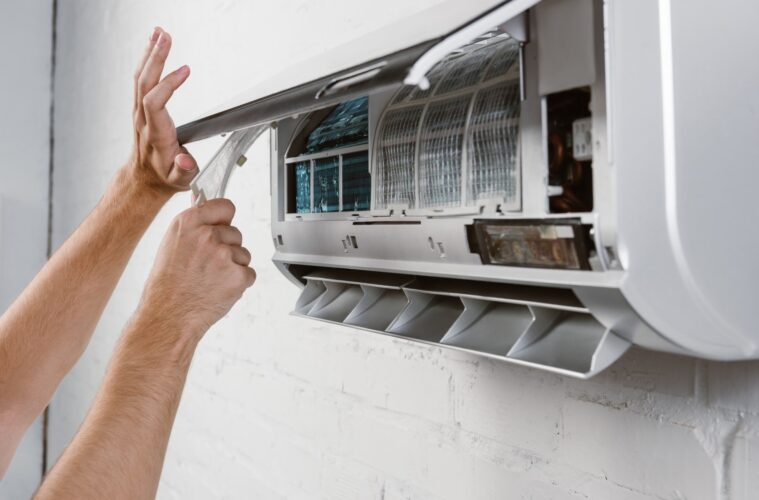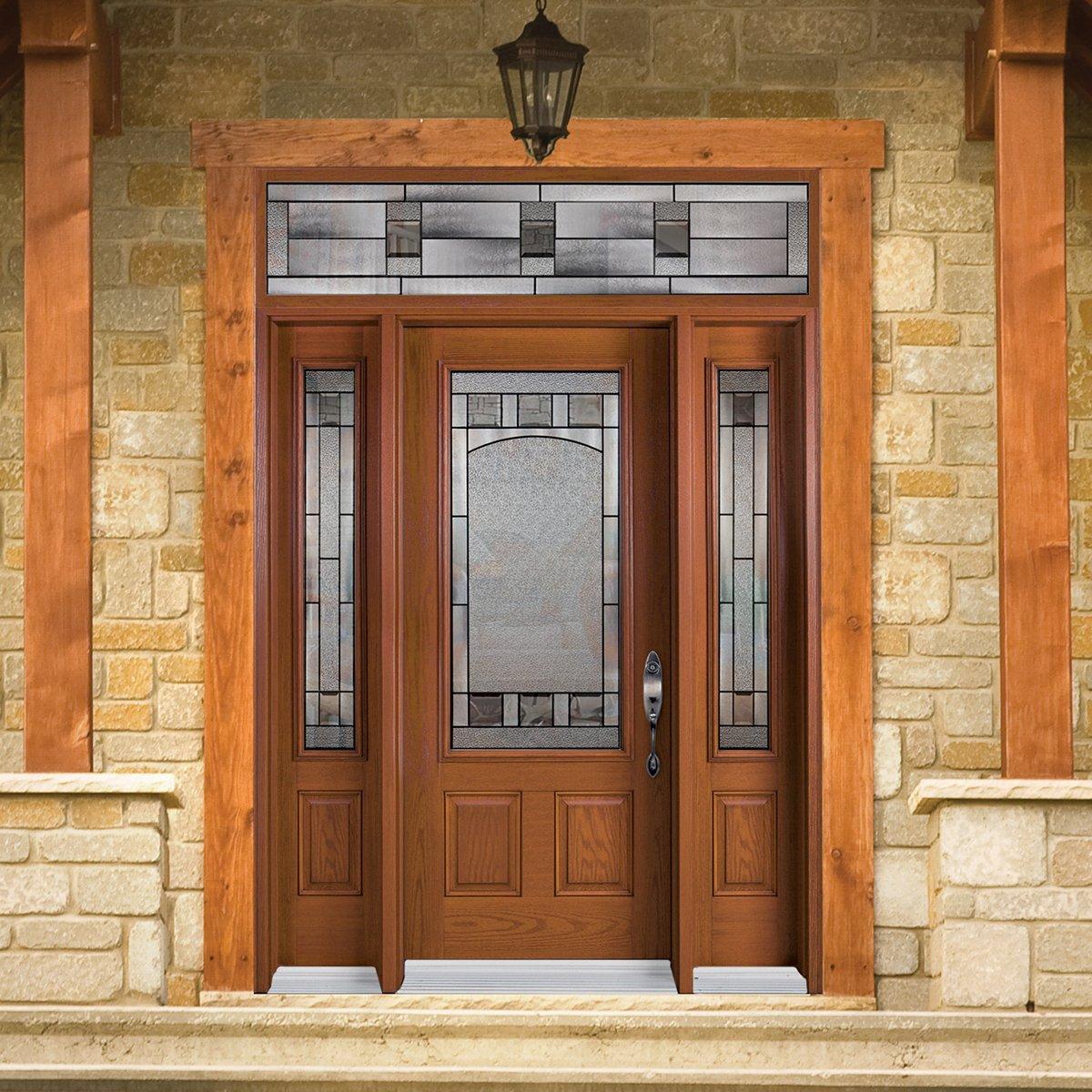Nowadays air conditioners have become crucial for us in order to lead a comfortable lifestyle. But remember, you need to ensure proper maintenance of the air conditioner so that it can perfectly manage its purpose of cooling the room when the temperature outside rises.
Regular maintenance ensures that the air conditioner lives a longer and more energy-efficient life.
When your AC malfunctions and cannot keep your home comfortable, it’s time to replace the system.
But when it comes to replacing the HVAC system can put homeowners in a fix as it requires a significant investment. They must also consider whether it is worth spending more money to get a more energy-efficient system.
The following signs indicate it’s time to replace the existing air conditioning system.
1. Thermostat Is Malfunctioning
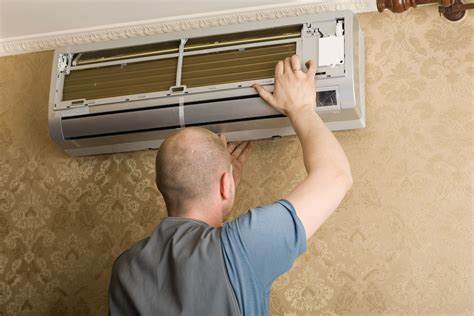
source: pinterest.com
The thermostat is the brain of an HVAC system that manages all the components of AC. There are two types of thermostats –
Programmable Thermostat – You can preset the heating and cooling choice using a programmable thermostat. Then the thermostat automatically maintains the temperature all day.
Non-Programmable Thermostat – A non-programmable thermostat works manually according to your direction.
When the thermostat is malfunctioning, your AC might turn on and off repeatedly. You also might not be able to read the correct temperature, and the temperature of your house might not match your programmed settings.
If these things happen, check whether the thermostat is working properly and whether it has batteries installed.
Contact a trained and licensed HVAC specialist to examine this complex electrical component to avoid other costly damages. They can also tell you which option is best for your HVAC system.
2. Little to No Air Flow
When you notice that the AC is on but does not cool your home as before, it is an obvious sign indicating your HVAC system needs to be repaired or replaced.
The air circulation issues, such as no or weak airflow from the AC, are often due to damaged and leaky ducts, blocked vents, or malfunction of the air handler. A broken motor or a blower fan can also cause a lack of airflow.
Turn off your AC immediately, and contact a professional to evaluate the total repair costs. The bottom line is when your HVAC unit is not performing up to its optimum level, it’s wise to replace it with a new model when the repair cost brings only a little benefit.
3. AC Is Blowing Warm Air
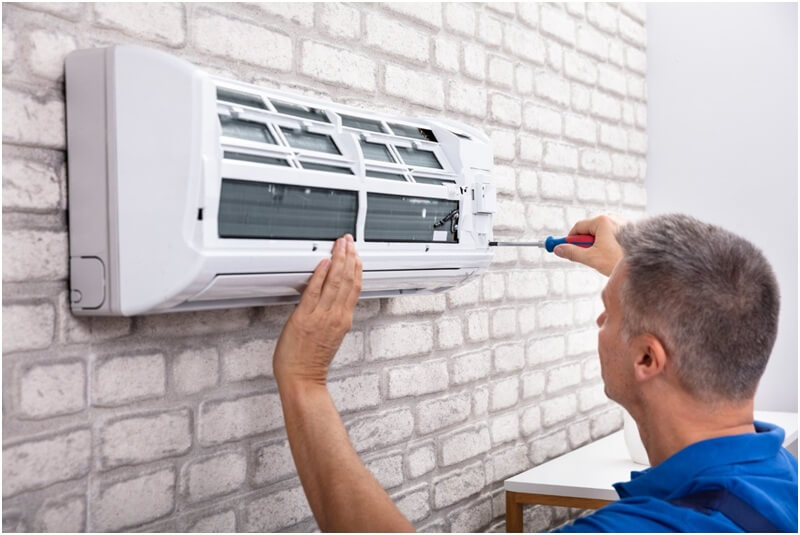
source: pinterest.com
A broken AC unit can make the indoor temperature of your house uncomfortable both in the summer and winter seasons. When your vent is blowing warm air when the air is supposed to be cool, it means that your HVAC system is malfunctioning.
If there is a problem with the AC compressor, your HVAC system is low in refrigerant, or the evaporator coils of the AC are frozen, it usually blows warm air.
When the compressor on your Ac unit doesn’t turn on you’ll need a licensed HVAC tech to troubleshoot the problem. But remember, the cost of refrigerant can be more expensive than installing a new cost-efficient unit.
4. Odors Come from the AC
When you experience unpleasant or musty odors coming from your AC, it means there are molds in and around your HVAC unit.
Mold spores usually grow in a dark environment with dust and debris and in places where moisture exists. Plus, they thrive in warm air. Therefore, when your HVAC system lacks regular and proper maintenance, it can easily become the ideal breeding ground for bacteria, mold, and mildew.
Once you identify that your HVAC system is mold-contaminated, take the necessary steps immediately. Otherwise, with the blowing air of AC, mold spores can spread throughout your home and can cause severe health issues for you and your family members.
When you smell the smoky odor from your AC, it indicates that the AC unit has a problem with wiring insulation.
No matter how you define the smell, call an expert technician to evaluate the repair cost when something uncommon happens to your system. Then you need to weigh the cost of these expenses with the cost of buying a new one.
5. Humidity in the Air
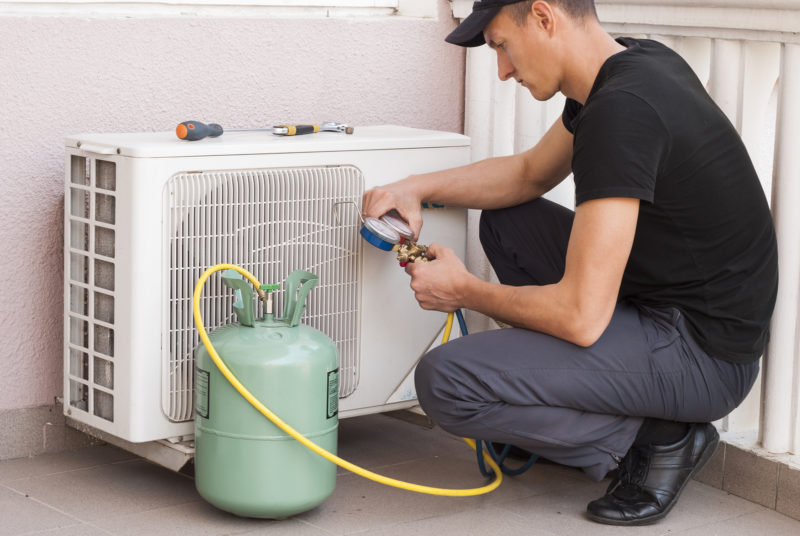
source: pinterest.com
The purpose of an air conditioning system is to control the moisture levels in your home. When you observe that the indoor atmosphere of your house is as humid as the outdoor weather, this indicates your system requires a recalibration.
The high humidity level inside the home is not only uncomfortable and unpleasant but also dangerous if kept unaddressed for a long time.
When your home’s humidity level is more than 60%, the air will become too wet, and thus your home becomes a breeding place for pests, molds, and rots. Eventually, it will pose different health risks, such as headaches, heatstroke, dehydration, heat exhaustion, etc.
On the contrary, when your home does not have enough humidity and the humidity level is below 30%, the air will become too dry. Plus, it will become dangerous for the structural integrity of our home.
So, the best approach to avoid those issues is to replace a new AC unit to get benefits in the long run.
6. Moisture in and around the Air
Leaking any moisture in or around the AC unit is a problem. Minor condensation around your AC system is pretty common, especially in the warm weather. Water from a blocked or broken tube that condenses in and around the unit causes less serious cases.
However, if you notice excess water or ice develops on the copper refrigerant inside the AC unit or condensation in the drain pan, these indicate leaks.
Leaks can happen over time, and it is easily noticeable. The important part is to address the issue as soon as possible because condensation, heavy drainage, or refrigerant leaks is a warning signs that can cause serious damage to your HVAC system and health.
Contact an HVAC specialist immediately to fix an inspection scheduled today. They can also guide you in optimizing your HVAC efficiency.
7. Frequent AC Repairs
When your AC requires frequent repairs and maintenance, it indicates a greater need to install a new AC system.
If you need to repair your AC every few months, it will extend the lifetime of your HVAC system but for a short time. Being stuck in this endless cycle of repairing will cost about 50% or more of the cost of installing a new one. So, it’s wise to go ahead and upgrade the system.
It’s the best time to think about investing your hard-earned money in installing a new AC system. Installing a new AC can eventually save you money in the long run; as with a new, energy-efficient system, you need not worry about your AC breaking down frequently.
8. Unusual Sounds Come from Your AC
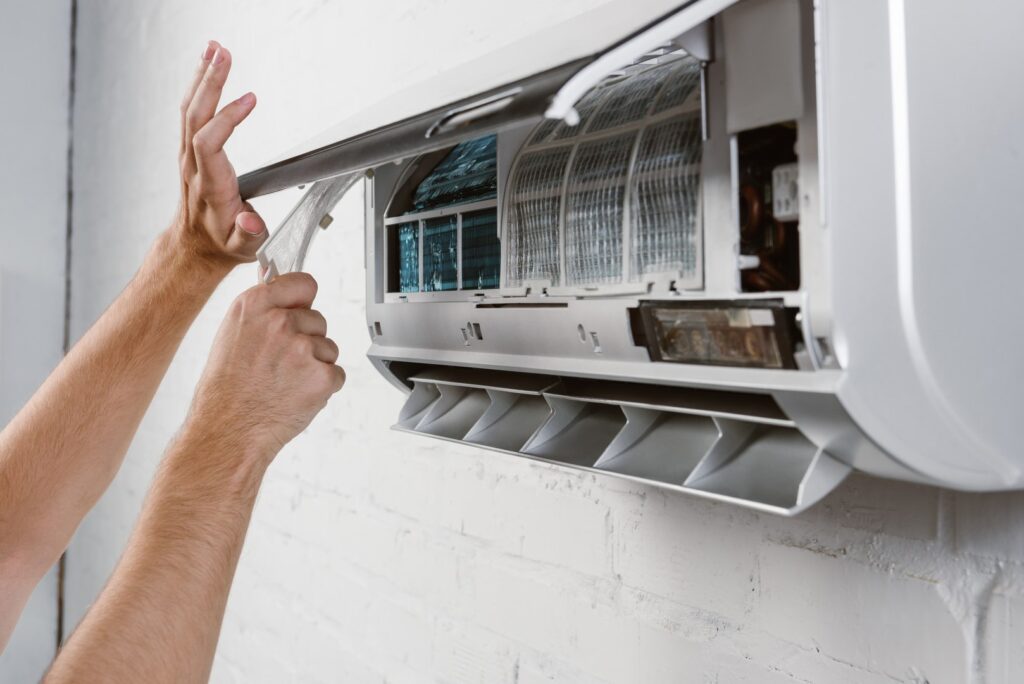
source: pinterest.com
It’s normal for an AC to make a low-level sound every time you turn the system on or off. But suppose you hear uncommon noises such as clicking, banging, hissing, bubbling, rattling, screeching, or any other strange sound; it’s usually an indicator that you need to replace it.
Call a professional technician to determine what extent of repair is needed. Also, consult which route is better for you – whether you should go for a repairing or replacing option.
9. Utility Costs Are Rising
Older ACs are simply not as energy-efficient as newer models. However, if you notice your utility bills spike suddenly, which is not in line with your previous month’s utility bill, it means your HVAC system is overworking.
When the system is overworking, it means the system is not working efficiently. As you know, the less efficient your HVAC system is, the higher the utility bill rises.
Depending on the condition of your HVAC system, you need to maintain or repair your AC. But sometimes, minor home adjustments, such as ceiling fans, shaded trees, window treatments, etc., can significantly affect your utility bills.
Call a professional to determine the exact cause of your system failing. If they say your system needs hefty repairs and that more repairs could be required in the future, consider investing in a new energy-efficient model to decrease the utility bills.
10. Your Current AC System Is More Than 10 Years Old
Everything has an expiry date. The average service life of a well-maintained Ac is about ten to fifteen years, whereas a unit with infrequent or improper maintenance will not last much longer.
Thus, the lifespan of any HVAC system depends on different factors like model or maintenance schedule. You can expect your HVAC unit to lose much of its effectiveness and efficiency once it comes near its deadline.
So, when the unit is approaching its average service life, it will be a great idea to consider a replacement option.
Call a professional and licensed expert to evaluate your older system, and they can also guide you to the most efficient HVAC system.
Final Words
If you find your air conditioner has any of these above signs, then it’s time to replace it with a new one. It is an overwhelming decision for most homeowners, but it is best for your family’s comfort. So, don’t wait for excess utility bills or for your system to break completely.
Rather contact an expert HVAC technician to evaluate your system. If repairing is the right option, he will handle it. But if it’s time for a new one, the technician can help you select the ideal system for your home.

